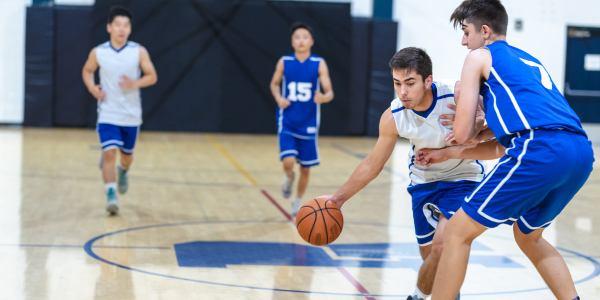
Do Losses Motivate You?
For many athletes, losses hurt their confidence and detract from their motivation.
Unfortunately, losses are part of the athletic experience. So goes the saying, “You can’t win them all.”
How you respond to a loss separates good athletes from great ones.
After a loss, you have two choices:
1. You can see the loss as an indictment of your ability as an athlete and competitor. This perspective cuts at your confidence. You wallow in self-pity and lose your motivation.
When you lose motivation, you go through the motions in training and practice. Your lack of preparation for future competitions leads to more losses.
2. You can use the loss to your benefit. A loss can motivate you to improve. You think, “I’m not going to make those same mistakes,” or “I refuse to lose in that way again.”
In practice, you work your tail off. You recommit to improving your mental game to gain every advantage possible. This attitude lifts your game and takes you to the next level.
Keys for Using Losses as Motivation
- Allow your emotions to settle after a competition
- Objectively review your performance
- Find the positives and the aspects of your performance that you did well
- Look for what needs to change without dwelling on the negative
- Commit to improvement and working to lift your game to new heights during training sessions
- Get to work
Vegas Aces’ Candace Parker is one of the best basketball players in WNBA history. At the beginning of the 2023 season, Parker was eighth all-time in the WNBA in career points (6,485), third in total rebounds (3,415), seventh in assists (1,593), and fifth all-time in blocks (612).
What separates Parker from most athletes is how she responds to losses.
PARKER: “I never thought of quitting after a hard season, 100 percent. If anything, I wanted to come back more and prove whatever I needed to prove.”
Last year, while playing with the Chicago Sky, Parker’s team lost the semifinal series against the Connecticut Sun.
In Game 5, Chicago let the Sun go on a 24-5 run in the fourth quarter to end the series. The loss was the main reason for Parker’s return for a sixteenth year and signing with Vegas.
PARKER: “We lost last year, and the way in which we lost, having a 14-point lead going into the fourth quarter, kept me up at night and just ate at my soul. It was kind of just one of those things where I was like, I can’t end like this. The last time I play basketball, we’re not gonna blow a 14-point lead in the fourth quarter. So, I think that kind of refocused and motivated me.”
Once a competition is over, it’s over. You may not be able to change the result, but you can choose your next steps and how you will respond to the loss.
Use the lose to improve your skills and game plan for the next week.
A few simple questions can steer you in a positive direction after a loss:
- “How will I respond to this loss?”
- “Will my response help or hurt future performances?”
- “How can I gain a mental advantage for future competitions?”
- “Am I willing to put in the work?”
Related Sports Psychology Articles
- How to Evaluate Losses for More Confidence
- How to Learn and Improve from Losses
- How to Recover Like the Pros After Losses
*Subscribe to The Sports Psychology Podcast on iTunes
*Subscribe to The Sports Psychology Podcast on Spotify
Download a free sports psychology report to improve your mental game!
Learn more about our one-on-one mental game coaching.
The Confident Athlete

“The Confident Athlete” consists of 2 audio programs that include 14 days of confidence fueling exercises and a simple to follow workbook that guides you through the 14 days, helps you apply the strategies, and customizes the exercises to your personal needs.
Let me help you put a stop to the confidence leak. You can learn to have greater levels of confidence in competition than you do in practice by identifying the specific ways you undermine your own confidence and how to convert your practice confidence into COMPETITIVE CONFIDENCE.
“The Confident Athlete” is a ground-breaking system to teach you how to think like a champion and have ultimate self-confidence every time you step on the playing field, court, track, or course. The confident athletes was developed for any athlete – junior to professional –that wants to gain confidence. However, coaches and sports parents can learn how to teach others to perform with ultimate confidence. Use my program if you want to bust a slump or just wanting higher or more consistent levels of self-confidence.
